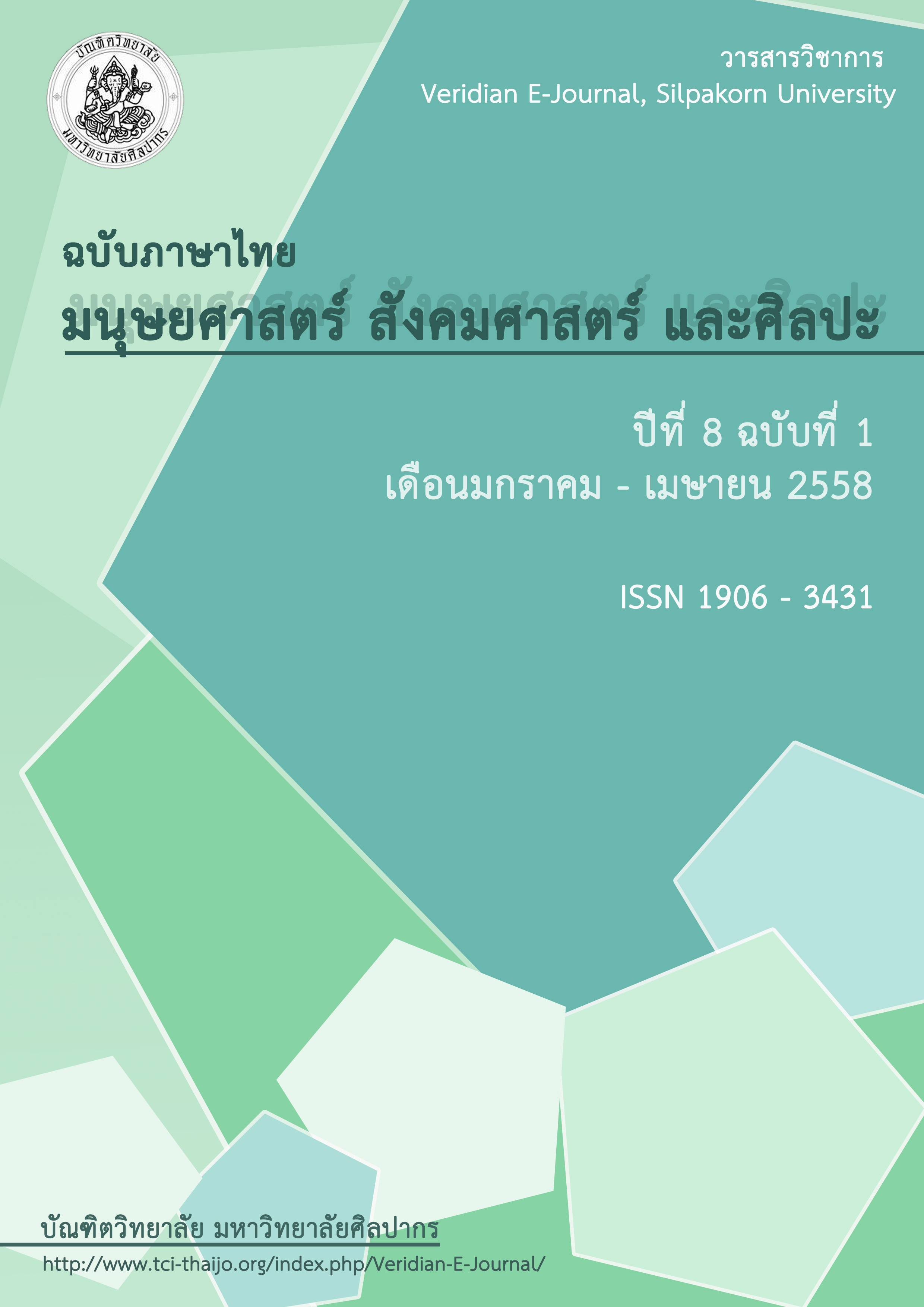การบริหารกิจการคณะสงฆ์โดยหลักทศพิธราชธรรมในจังหวัดชุมพร
Main Article Content
Abstract
บทคัดย่อ
การวิจัยนี้มีวัตถุประสงค์เพื่อศึกษา 1) การบริหารกิจการคณะสงฆ์โดยหลักทศพิธราชธรรม ในจังหวัดชุมพร 2) ความสัมพันธ์ระหว่างการนำหลักทศพิธราชธรรมกับการบริหารกิจการคณะสงฆ์ในจังหวัดชุมพร และ 3) เสนอแนวทางที่เหมาะสมในการบริหารกิจการคณะสงฆ์ในจังหวัดชุมพร โดยใช้ระเบียบวิธีการวิจัยแบบผสมผสานระหว่างการวิจัยเชิงปริมาณและเชิงคุณภาพ กลุ่มตัวอย่าง คือ ผู้บริหารระดับสูงตั้งแต่เจ้าอาวาสขึ้นไปจำนวน 240 รูป โดยการสุ่มตัวอย่างแบบเจาะจง และการสัมภาษณ์เจาะลึก ผู้ให้ข้อมูลสำคัญคือ พระเถระผู้ใหญ่ที่ทำหน้าที่บริหารงานคณะสงฆ์ระดับที่ปรึกษา 9 รูป และวัฒนธรรมจังหวัด 1 ท่าน รวม 10 ท่าน สถิติที่ใช้ในการวิเคราะห์ ได้แก่ ค่าร้อยละ ค่าเฉลี่ย ส่วนเบี่ยงเบนมาตรฐาน และค่าสัมประสิทธิ์สหสัมพันธ์ของเพียร์สัน ผลการวิจัยพบว่า
1. การบริหารกิจการคณะสงฆ์ โดยรวมอยู่ในระดับมาก ด้านที่มีค่าเฉลี่ยสูงสุด 3 อันดับลงไป ได้แก่ ด้านการสาธารณูปการ ด้านการสาธารณสงเคราะห์ และด้านการปกครอง ส่วนหลักทศพิธราชธรรม โดยรวมอยู่ในระดับมาก ด้านที่มีค่าเฉลี่ยสูงสุด 3 อันดับลงไป ได้แก่ อวิหิงสาคือ การไม่เบียดเบียนใคร อวิโรธนะคือ การไม่ขัดแย้งกับใคร ขันติคือ ความอดทน อดกลั้น ตามลำดับ
2. ความสัมพันธ์ระหว่างการนำหลักทศพิธราชธรรมกับการบริหารกิจการคณะสงฆ์ พบว่า โดยรวมมีความสัมพันธ์ในทิศทางเดียวกันทางบวกในระดับสูง (r = 0.83) อย่างมีนัยสำคัญทางสถิติที่ระดับ 0.01 เมื่อพิจารณารายด้าน 3 อันดับแรก พบว่า ด้านการศาสนศึกษามีความสัมพันธ์มากที่สุด (r = 0.84) รองลงมาคือ ด้านการสาธารณูปการ (r = 0.80) และด้านการศึกษาสงเคราะห์ (r = 0.77) ตามลำดับ
3. แนวทางที่เหมาะสมในการบริหารกิจการคณะสงฆ์ในจังหวัดชุมพร ได้แก่ การปกครองคณะสงฆ์ โดยใช้หลักธรรมาธิปไตยที่เน้นการแต่งตั้งเจ้าคณะจังหวัด เจ้าคณะอำเภอ เป็นต้น ตามลำดับความอาวุโส และมีการกระจายอำนาจในการบริหาร รวมทั้งยึดหลักพระธรรมวินัยของเถระสมาคม
Abstract
The purposes of this research were to: 1) study the administration of the monastic order in Chumphon Province by using the TenfoldVirtue of the King 2) study the relationship between the Tenfold Virtue of the King and the administration of the buddhist monastic order in Chumphon Province, and 3) propose the suitable way to develop administration of the buddhist monastic order follow the Tenfold Virtue of the King. Using two step approach method for this research and using qualitative research to collect a data. The sample group were the 140 executive; upper abbot in Chumphon Province by using indicated random sample to develop data from a quantitative research to a qualitative research. Using Non-structured in-depth for interviewing and collect data by in-depth interview the 10 Ecclesiastical District Officer. The statistic that used to analyze were percentage, mean, standard deviation and Pearson’s Product Moment Correlation Coefficient. The results of the study were as follow:
1. Sangha administration by included in high level to the highest rank in 3, including the construction and renovation of public welfare the government, the royal virtues, were at a high level to the highest rank in 3 include summon is not to exploit the tumult is not in conflict with people, tolerance, patience, respectively.
2. The relationship between the Royal virtues to the sangha administration, it was found that the positive relationship in the same direction at a high level. (r = 0.83) significantly 0.01 when the 3 first found that the correlated most. (r = 0.84), followed by the utility (r = 0.80) and the housing (r = 0.77), respectively.
3. Appropriate Sangha administration in the provinces, including the ruling clergy. The royal virtues focused appointed of load abbot of buddhist monastery in province and in each district respectively seniority and decentralization in the administration. Based on the principle of association, including the monastery thera.
